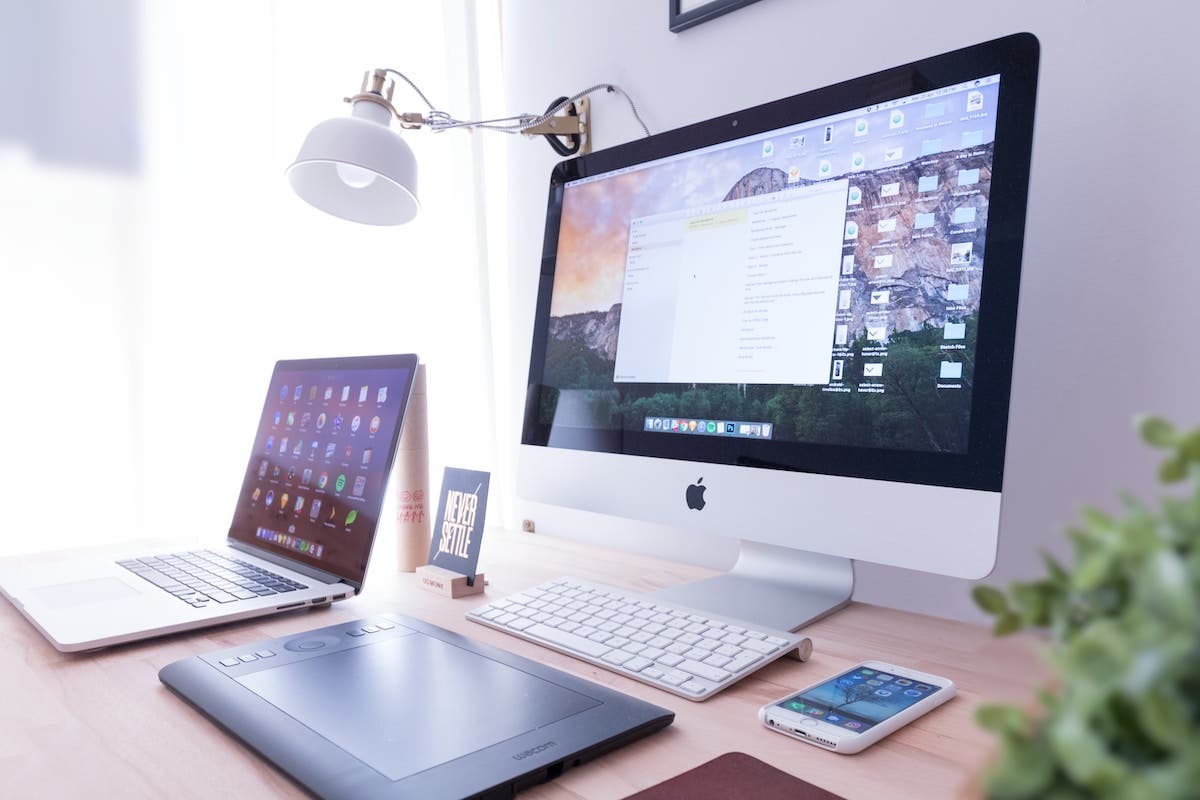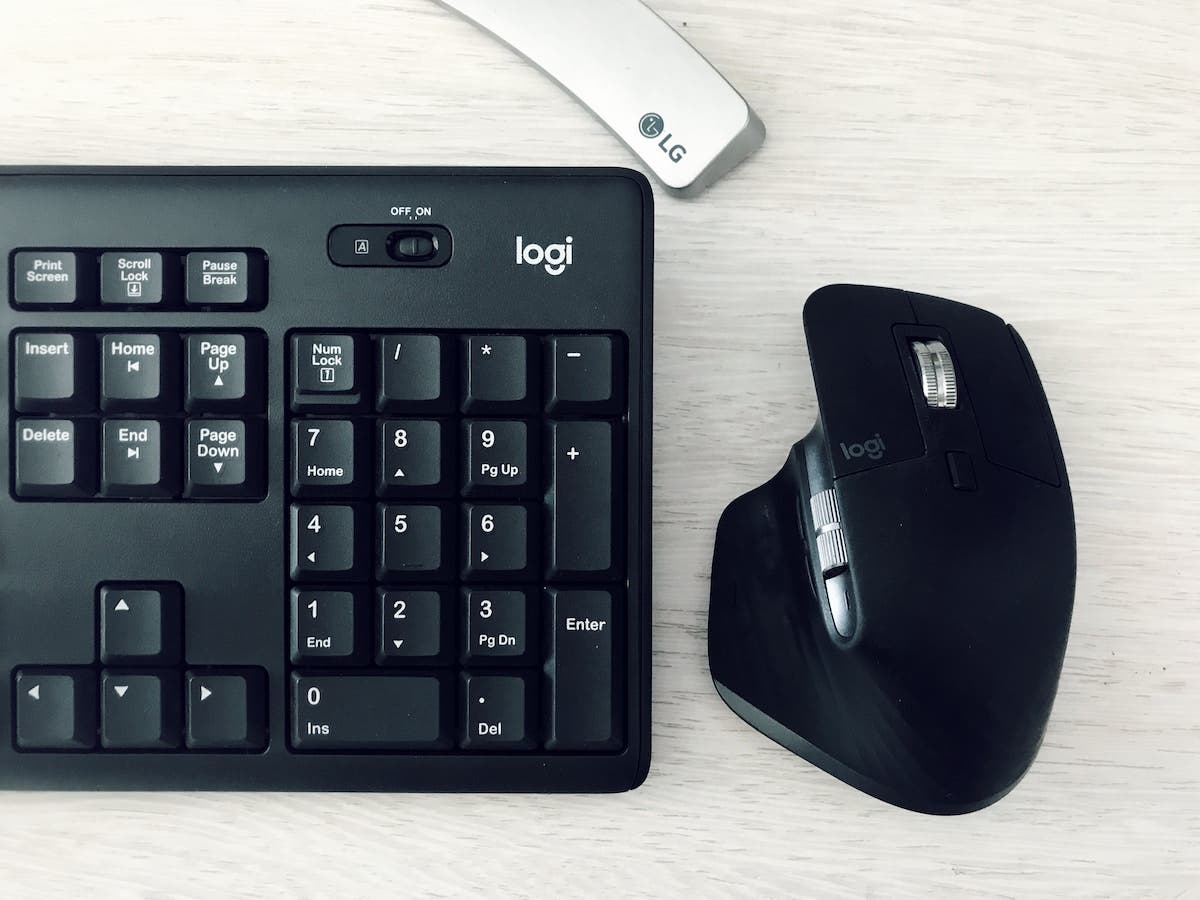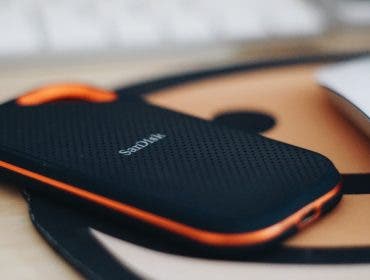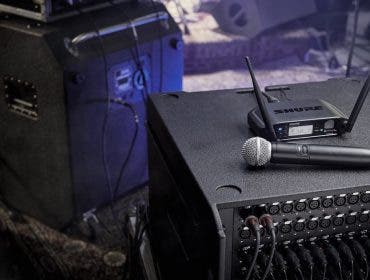A computer is a big investment, and hopefully one that will last you for the next few years. When spending any amount of money, you always want to make sure you’re making the right choice – especially if it’s more than you would normally spend. A computer is absolutely essential to any lifestyle. Working from home is becoming more standard in our world, and having a computer that can handle your workload is vital. A computer to play your favorite games after a shift or during the weekend can be the exact distraction you need. If you’re a designer or going to school, you’ll need a computer for creating, studying, and all the applications in between. In this article we’re going to go over different types of computers, and how to choose a computer that will benefit you.
Laptop vs Desktop
Let’s start with whether you want a laptop or a desktop. Each has their pros and cons and depending on what you’re looking for, you might even need both.
Laptop
A laptop is all about versatility and portability. Having the option to take your work, games, and school with you makes a laptop incredibly efficient. Laptops come with everything already built in — a monitor, mouse and keyboard. So you don’t need to spend extra money on peripherals that you would need for a desktop. If you’re someone who tends to travel a lot, then a laptop is going to be your perfect companion. Laptops are slim by design, and are incredibly compact to slide right into a backpack or carry-on.
Typically, laptops have a built-in camera and microphone to make those work-from-home meetings seamless. There are a wide range of laptops, whether you’re a creative, gamer, casual user, or need something more on the heavy duty side. Laptops tend to not have the best fan and heat circulation due to their size and compactness. If you’re someone who wants a beast of a laptop, it might be best to check out a desktop as it gives you the option to modify components. That’s where laptops tend to lose out against desktops. You’re not able to swap out components in a laptop, so you are stuck with what you buy. Also, repairing a laptop is a lot more difficult than repairing a desktop computer.
The more powerful laptop you get, the heavier it will be and the bigger power supply it will come with. A laptop is perfect for casual users, those who love to take their work with them, and having everything built in.

Desktop
A desktop is going to be a heavy piece of hardware. If you need to run heavy applications — or if you are a big gamer — then you’re going to want a desktop. You will have to purchase a monitor and other peripherals alongside your desktop. So the price will tend to be much higher than a laptop. However, you get the versatility to customize your desktop based on what you want. Desktops are much more malleable than a laptop. This allows the user to upgrade parts as time goes by. Instead of having to buy a brand new laptop or desktop, you can simply upgrade the CPU, GPU, and more. There is a saying that once you upgrade your desktop, you truly never stop, so be wary of that.
If you have a designated office space in your home, then a desktop would be perfect for it. Desktops are typically built for heavy duty users that need high-powered applications. Laptops have nearly caught up with desktops from a technological standpoint. You can now run the same applications on laptops that you can on desktops. If you’re someone who loves to be in control of what goes inside your computer and don’t need a travel-friendly device then a desktop is for you.
I myself have a gaming desktop at home where I play my games and do my heavy work. I also have a laptop I bring with me on trips. This allows me to get casual work done and draft out future projects away from home, knowing the bulk of my work will be completed at home on my desktop.

Mac vs Windows
There are endless arguments you can make for either one when you choose a computer. What it really comes down to is trying this out for yourself. Go into the Adorama store and test both out. The look, feel, and design is all subjective to the user.
Mac
A Mac is geared toward creatives. Apple has an incredible suite that comes included with Apple software. These allow you to edit movies, photos, documents, and more. Apple is a step above the rest in terms of user design and accessibility. If you’re not accustomed to the Apple interface then it could be a little jarring to get used to. Apple does a great job of seamlessly connecting all their devices. If you own an iPhone or an iPad, then you’re able to continue where you left off on any device, and save files between them. They call it the Apple ecosystem for a reason. Once you get into the Apple world, it’s very hard to get out.
Where Apple can do better is having a device that can play games. Apple is not known as a gaming device, and I would not recommend an Apple computer if you want to play games. Apple shines for students, creatives, and those who need a device for work.
Windows
A Windows computer gives you more control — some would even say too much. You can get into every single file on a Windows computer allowing you to customize and make everything your own. The downside is, you can accidentally delete an important file crashing Windows completely. You’ll need to purchase applications that come free for Apple. For example, Microsoft Word, Power Point, a photo editor, and video editor.
Where Windows shines is the affordability. Windows computers tend to not have that luxury price tag that Apple has. Plus, Windows computers are also built for gamers. If you’re a gamer, it’s easy to choose Windows without question.
This is not an easy decision, and it comes down to which UI design you prefer. Test out both and go from there.

Computer Features
The most important aspect of a computer are the specifications. The hardware will determine what your computer is capable of. Let’s get into what makes a computer compute.
Central Processing Unit (CPU)
The central processing unit (CPU) is the brain of the computer. This tells all the other parts what to do and how to do it. There are different manufacturers that make CPU’s. The big names are Intel, AMD and Apple makes their own in-house. When it comes to figuring out which CPU you want, you want to figure out what you’re using your computer for. If you’re a gamer or creative and need to run heavy applications, you’ll need an intensive CPU with a lot of cores, threads, and GHz. The more powerful your CPU, the more powerful applications you can run. If you’re a casual user, then you won’t need the best of the best.
Graphics Card
The graphics card is responsible for the quality of visuals on your computer. This is incredibly important if you are a gamer. These are measured by a multitude of ways, but the most important spec to keep in mind is the GB. The more GB built into the GPU, the more processing power it has for big applications. If you plan on playing a big game like the new Hogwarts Legacy, you’ll need a pretty strong card. This is also important depending on what gaming monitor you are using. Certain GPU’s can’t output to 2K or 4K, make sure your GPU is compatible with your monitor. Keep in mind a GPU can also have a big effect on 3D design, and animation work.
Random Access Memory (RAM)
Random access memory (RAM) is what allows the computer to multitask and open applications. When performing computer tasks, the RAM allows the user to load, run and switch between them seamlessly. The more RAM you have, the quicker applications will load and run. RAM is important for games, editing, and general use. A good average amount of RAM for any computer is 8GB. If you’re a gamer and run a ton of applications, I would recommend nothing less than 16GB.
Storage
Storage is what allows users to save their files locally on the computer. It also holds the operating system needing to run everything. Most users save their files on Cloud software in case something happens to their drive. If you have multiple large files, then a bigger storage device is needed. There are two different external storage options: hard drive (HDD) or a solid state drive (SSD). The main difference is a hard drive will be cheaper, but not as fast or future-proof. A solid state drive will be more expensive, fast, and safer to store your information. It is usually recommended to save the operating system on a SSD as your computer load times will be faster. I have a 3TB HDD in my computer alongside three 250GB SSD.
Ports
Ports are important, especially if you have a lot of peripherals. Find out if you need USB-A or USB-C ports. Also determine how many HDMI or DisplayPorts you will need for external monitors. A laptop will not have as many ports as a desktop. Some laptops come with SD card slots, which are important for filmmakers and photographers. I always make sure my laptops have an HDMI port so I can plug in another monitor while working.
Webcam and Microphone
A webcam and microphone are essential now with many people working from home. With a desktop computer, you’ll have to buy these both separately. They are typically included in a laptop, but make sure to test both out to see the quality. I wouldn’t get any webcam that is lower than 1080p resolution.

Computer Accessories
After you choose a computer, you can determine what kind of computer accessories you will also need. Depending on the ports you have some accessories might not be compatible. You also might have to buy a dongle to add additional ports to your device.
Mouse and Keyboard
A mouse and keyboard are necessary when owning a desktop. Some desktops come with their own which makes it easier. A laptop will already have a laptop and a mouse pad built in. I prefer using a mouse because I’ll have more control over my movement. When shopping for a keyboard you want to look for a few things. A mechanical keyboard is going to sound great, and be more responsive. Having a keyboard with a numerical pad and extra accessibility buttons can go a long way with work and games. The most important aspect of a keyboard is how it sounds and feels. Get your hands on as many keyboards as you can and see which you love the most.
A mouse sounds simple enough, but the size and layout is going to be important. Make sure to find a mouse that fits your hand shape and is comfortable. You’re going to be using this mouse for hours a day, the last thing you want is muscle fatigue or cramps. Mice can have additional buttons for shortcuts in applications. This can make jobs a lot easier to do and games more fun. A lot of mice come with software to change DPI, color and button layout too.
External Hard Drives & Solid State Drives
Laptops have limited storage space, and it’s not accessible to modify once you purchase it. That’s where external hard drives and solid state drives come in. Having an external drive allows you to organize and save more files. They also give you portability when wanting to bring your files with you. If you work in multiple different locations and don’t use a Cloud-based service, then an external drive will make things easier for you. Plus, it gives you a place to save your files that you still want to have in your life, but don’t need to be readily available on your computer.
There are a few more accessories that come into play with computers such as speakers, port adapters, headphones, and more. These are all determined based on your needs. A desktop won’t have speakers included, but a laptop will. Port adapters are incredibly helpful if you have numerous peripherals you need to plug in and a limited number of ports.
Conclusion
Understanding your needs is the first step when you choose a computer. Determine if you need a computer for speed and power versus a computer for leisure and casual use. A laptop will give you a versatile, travel-friendly option that a desktop can’t replicate. A desktop will give you more power and the option for customization and upgrading. Tie in all the specs and which operating system you want. Above all, have fun when you choose a computer you need. It’s an exciting purchase that will stay with you for years.






